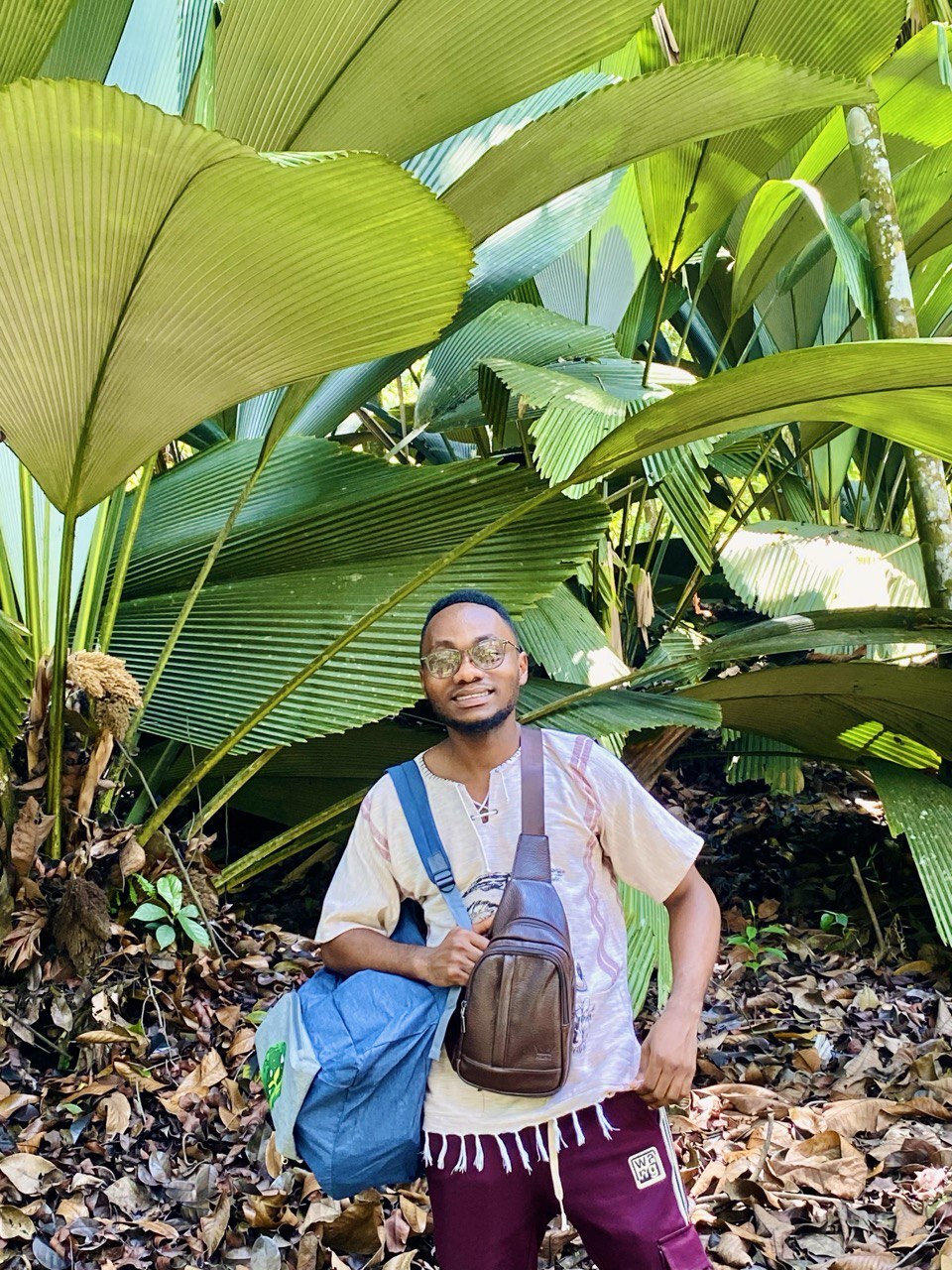Meet James Chrispin
Meet James Chrispin, a medical doctor working at Sekou-Toure Regional Referral Hospital, a public hospital in Mwanza, Tanzania and founder and Director of Tanzania Clinicians in Planetary Health and Global Health Hub.
Vet Sustain
Hi James, please briefly describe your current role and professional interests?
I am a founder and Director of Tanzania Clinicians in Planetary Health and Global Health Hub, which is an NGO focusing on advocacy for Human Health and Global Environmental Change. My professional interest is to study the interconnectedness of human health, animal health and the impact of environmental change on health.
With experiences in infectious diseases, neglected tropical diseases and antimicrobial resistance, I work within the Planetary Health Alliance as a Next Generation Youth Council Fellow. My role is advising the Planetary Health Alliance leadership team on youth engagement strategies in planetary health advocacy. Also providing mentorship to a global network of Planetary Health Campus ambassadors on planetary health advocacy and guidance on planning of their projects.

What does a typical day look like for you?
As a medical doctor at Sekou-Toure Regional Hospital, a typical day starts early with ward rounds, where I check on my patients and review treatment plans.
Mid-morning, I might attend to outpatient consultations or participate in planetary health activities including zoom meetings or online workshops.
Afternoons often involve re-reviewing my patients, completing documentation, research projects, or coordinating with my colleagues.
In the evening, I dedicate time to exercise, planetary health advocacy, preparing for conferences or managing the CUHAS Planetary Health Club activities.
What is your favourite part of your job?
As a medical doctor, my favourite part of the job is caring for my patients, especially when I see a sick patient recover, improve well with medications and go home healthy.
I also enjoy mentoring and working with the youth on developing ideas and initiatives on eco-health and one health projects targeting public health promotion, as it allows me to contribute to broader health solutions in Tanzania.
What is the most challenging part of your job?
As a medical doctor working at Sekou-Toure Regional Referral Hospital, one of the most challenging parts of my job is seeing a patient suffer from preventable illnesses due to a lack of resources or awareness. It's difficult knowing that some outcomes could be improved with better public health infrastructure. Also when realizing human activities that pollute our environment is the contribution to a health condition, but a patient fails to realize due to lack of knowledge.
Most of all we have seen heavy rainfall and flooding destroy our healthcare infrastructure, which makes it very difficult to be able to provide consistent treatment to my patients.
To address this, I actively engage in health education initiatives, focusing on educating my patients and requesting them to be an ambassador in health promotion and ensuring environmental sustainability. I also engage in public health research to find sustainable solutions.
This challenge motivates me to advocate for stronger healthcare policies and community-based interventions
Do you have any tips for achieving a good work-life balance?
Achieving a work-life balance can be challenging, especially in the medical field. I find it helpful to set clear boundaries, such as dedicating time after work for personal activities like exercise, reading, or spending time with friends. I also make sure to schedule breaks during the workday and plan vacations to recharge. Prioritizing tasks and delegating when possible helps me manage workload efficiently, ensuring I have time for both my professional goals and personal well-being.

How do veterinary professionals currently help to drive sustainability?
Veterinary professionals drive sustainability through the One Health approach by addressing the interconnectedness of human, animal, and environmental health which includes advocating for zoonotic diseases and antimicrobial resistance, promoting sustainable livestock management, reducing the carbon footprint of farming, and supporting biodiversity conservation. Environmental protection and reduction in greenhouse gas emissions ultimately leads to the protection of human health.
Veterinary professionals help to minimize environmental contaminants by adopting eco-friendly practices, such as reducing plastic waste, using sustainable medical supplies, and properly disposing of pharmaceutical waste. Additionally, they educate communities about responsible antibiotic use and environmental stewardship, contributing to healthier ecosystems and societies.
What do you feel are the major opportunities to drive sustainability in the veterinary sector?
I believe there are several major opportunities to drive sustainability in the veterinary sector. One key area is promoting sustainable livestock management to reduce greenhouse gas emissions and resource use. Another is improving education for veterinary professionals on sustainable practices and the One Health approach. Additionally, reducing waste and adopting eco-friendly practices in veterinary clinics can lower environmental impacts. Supporting research into alternative treatments and advancing wildlife conservation initiatives also present valuable opportunities to enhance sustainability.
What are your top tips for veterinary professionals wishing to take the first steps to drive sustainability in their roles?
My top tips for veterinary professionals taking their first steps toward sustainability are:
- Educate yourself on sustainable practices in animal care and share this knowledge with colleagues and clients.
- Reduce waste in your clinic by minimizing single-use plastics and implementing recycling programs.
- Prioritize preventative care to improve animal health and reduce unnecessary medical interventions.
- Collaborate with human health and environmental experts through the One Health approach.
- Advocate for sustainable farming practices with livestock owners to reduce environmental impacts.
If you could wave a magic wand and make one improvement to drive the sustainability impact of the veterinary profession, what would it be?
Reducing antibiotic resistance is of paramount importance to me.
If I could wave a magic wand, I would ensure that all veterinary antibiotics are used responsibly worldwide, eliminating misuse and reducing the rise of antimicrobial resistance. This would protect animal health, safeguard human health, and preserve the effectiveness of antibiotics for future generations. Through the use of sustainable farming practices I would transform all livestock farming into fully sustainable, low-carbon systems that ensure animal welfare and minimize environmental impact. This would reduce greenhouse gas emissions, protect ecosystems, and promote healthier food systems. I would also create One Health and Eco-Health collaborations providing a global network where veterinarians, human health professionals, and environmental scientists work seamlessly together under the One Health and Eco-Health framework. This collaboration would prevent zoonotic diseases, protect biodiversity, and address climate change.